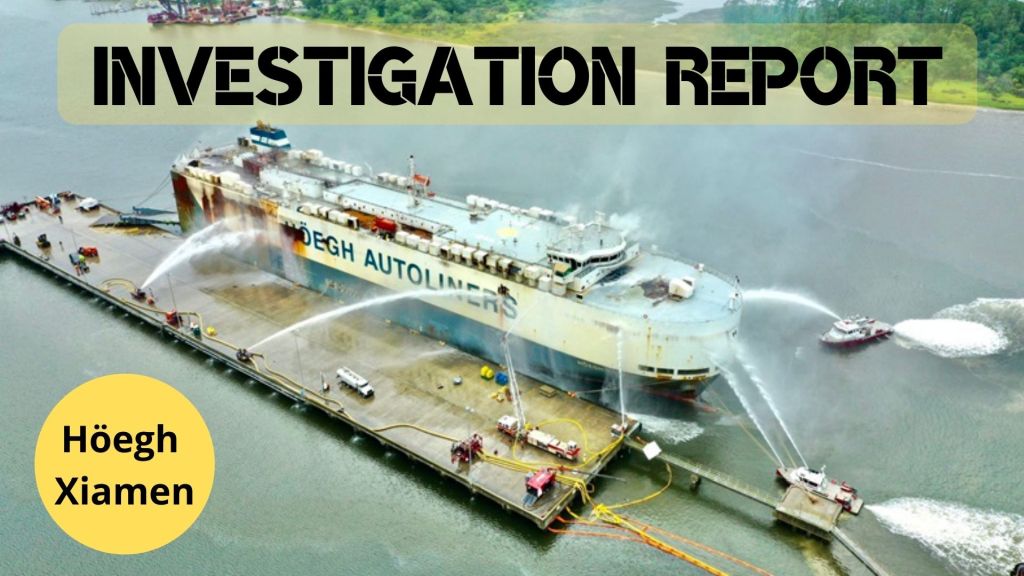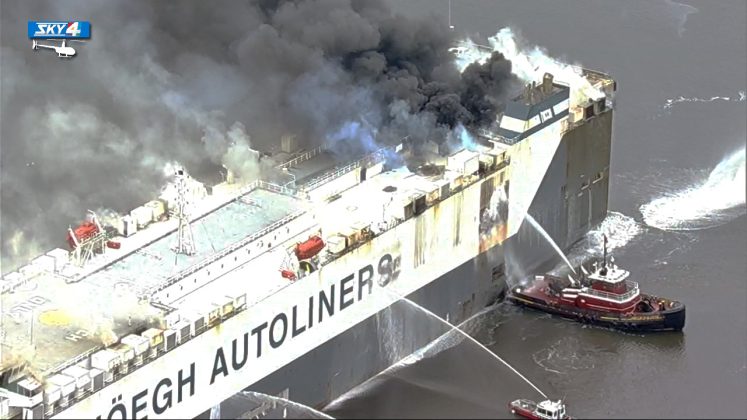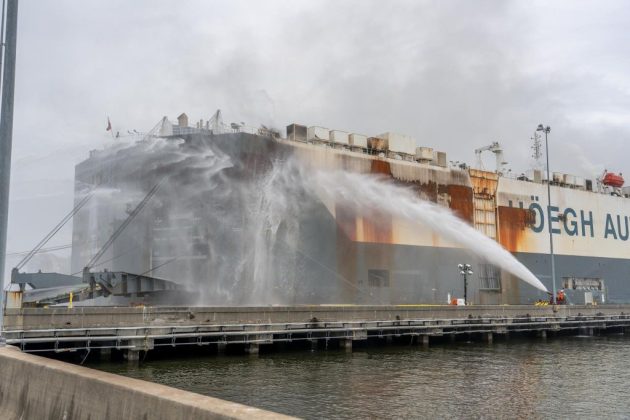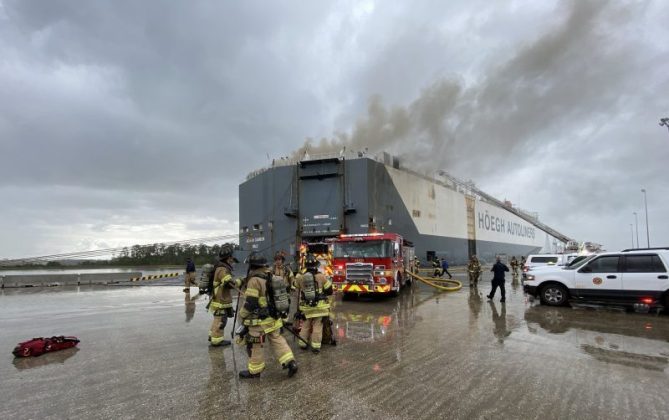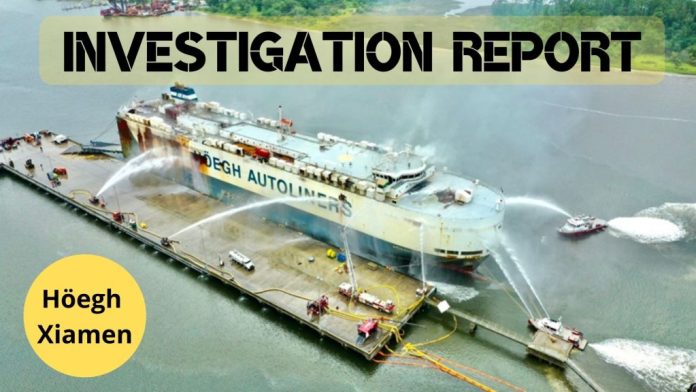
(www.MaritimeCyprus.com) An electrical fault from an improperly disconnected battery in a used vehicle led to the fire aboard vehicle carrier Höegh Xiamen that resulted in U$40 million worth of damages, the National Transportation Safety Board said Thursday. As a result of the investigation, NTSB issued eight safety recommendations to federal regulators and the companies involved in the accident.
Marine Accident Report details the NTSB’s investigation of the June 4, 2020, fire aboard the Höegh Xiamen in Jacksonville, Florida. Jacksonville Fire and Rescue Department responded to help fight the fire. Nine firefighters sustained injuries while responding. None of the vessel’s 21 crewmembers were injured. The fire took over a week to extinguish. The Höegh Xiamen and its cargo of 2,420 used vehicles were declared a total loss valued at $40 million. In August 2020, after salvage operations were completed, the vessel was towed to Turkey to be recycled.
The crew noticed smoke coming from the ventilation housing while preparing to depart port for Baltimore, Maryland. Crewmembers discovered a fire on deck 8, which had been loaded with used vehicles. The fire eventually spread to other decks and continued to burn for 8 days.
The NTSB concluded many of the vehicles loaded onto the vessel had batteries that were not disconnected and secured in accordance with procedures, which increased the risk of electrical arcing and component faults. During loading operations, both the loading personnel and crew missed opportunities to address these hazards.
The investigation showed that the detection of the fire was delayed because the vessels’ fire detection systems had not yet been reactivated after loading was completed. Additionally, the Jacksonville Fire and Rescue Department’s response to the accident was delayed because the Höegh Xiamen’s master did not immediately have available contact information for search and rescue authorities and did not know how to report a fire to local authorities.
The NTSB determined the probable cause of the fire aboard the Höegh Xiamen was Grimaldi Deep Sea’s (who time chartered the vessel) and SSA Atlantic’s (Grimaldi’s contractor for stevedores) ineffective oversight of longshoremen, which did not identify that Grimaldi’s vehicle battery securement procedures were not being followed. This resulted in an electrical fault from an improperly disconnected battery in a used vehicle on cargo deck 8. Contributing to the delay in the detection of the fire was the crew not immediately reactivating the vessel’s fire detection system after the completion of loading. Contributing to the extent of the fire was the master’s decision to delay the release of the carbon dioxide fixed fire extinguishing system.

Safety issues identified in the report include:
- training for and oversight of vehicle battery securement,
- regulatory exceptions for used and damaged flammable liquid-powered vehicles,
- fire detection system deactivation during cargo loading, and
- effective emergency distress calls.
There have been five similar accidents since 2015, including a 2019 fire aboard Grimaldi’s Grande Europa. Following Grimaldi’s experience with previous roll-on/roll-off vessel fires, the company developed a battery disconnect procedure to reduce the risk of vehicle fires during transportation. This procedure was used on Höegh Xiamen; however, the Coast Guard’s post-accident examination of a sample of 59 vehicles did not find a single battery that was secured in accordance with Grimaldi’s battery disconnect procedure.
For more details, download the NTSB investigation report below:
For more Marine Accident Investigation Reports, click here.
Source: NTSB





